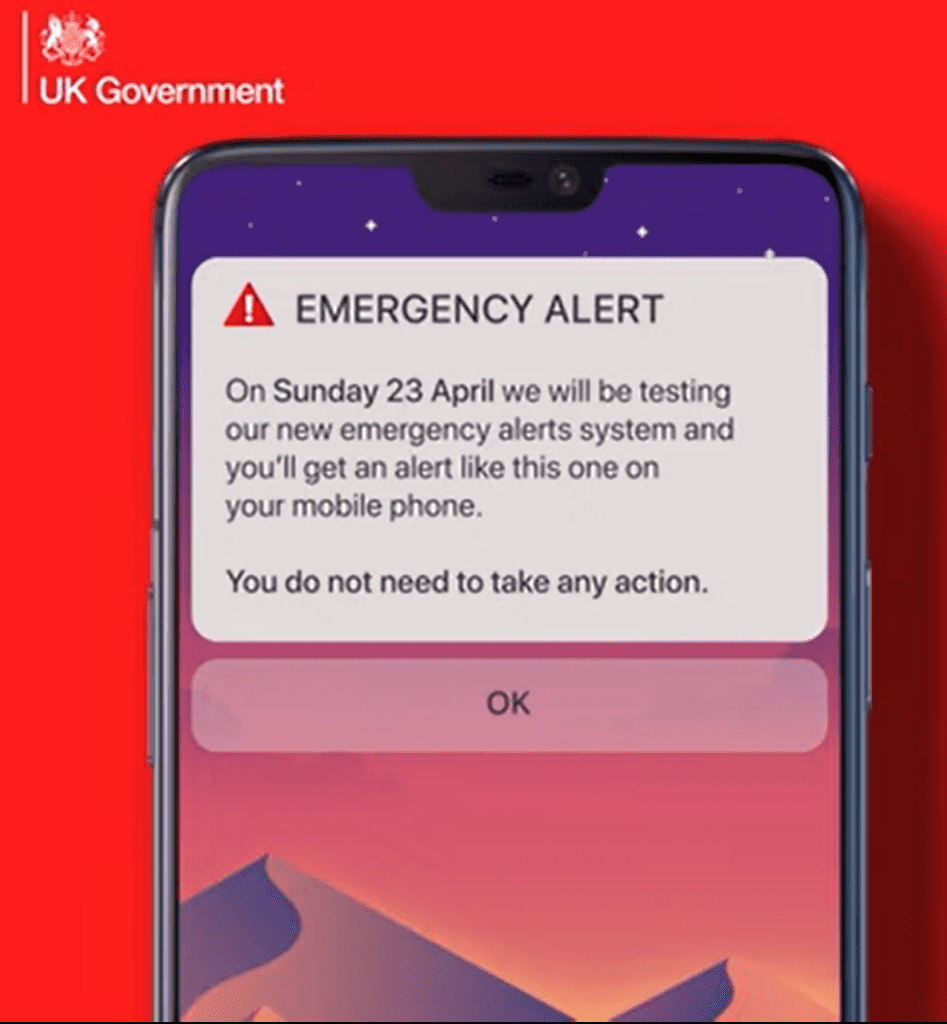Emergency Alerts system
What exactly is happening?
The government recently introduced a new Emergency Alerts system, which aims to inform people about local or national emergencies and provide guidance on how to stay safe in life-threatening situations such as severe weather, terrorist attacks, and public health crises.
On Sunday, April 23, at 3 pm, the government will conduct a nationwide test of the Emergency Alerts system. The test message will explicitly state that it is only a test and that no action is necessary. It will also include a link to access more information on the Emergency Alerts service. This test has received extensive media coverage leading up to it.
Emergency Alerts have distinct visual and auditory characteristics that distinguish them from regular SMS messages. When a user receives an Emergency Alert, their phone or tablet may emit a loud siren-like sound and vibrate for approximately ten seconds, even if it’s on silent mode. The message will remain on the screen until the user acknowledges it.
Emergency Alerts function on all 4G and 5G mobile networks in the United Kingdom. If a device is switched off, on airplane mode, or connected to a 2G or 3G network, customers will not receive Emergency Alerts.

As a result of the media coverage, we anticipate that some customers may have inquiries about the Emergency Alert service. These inquiries may include questions about their personal data and whether they have the option to opt out of the service.
- Emergency Alerts are exclusive to the emergency services and government departments that handle emergency situations.
- During an emergency, mobile phone masts will broadcast the alert to all compatible devices within the affected area.
- The sender of the Emergency Alert does not require the recipient’s phone number. If a device is compatible, it will automatically receive the message. As a result, no data on the user, their phone number, device, or location will be collected or shared as part of this process.
- Alerts will be sent based on the device’s current location, not the user’s residence or workplace.
Please be aware that these Emergency Alerts are not intended to replace traditional media sources such as local news, radio, television, or social media, which also inform people about what is happening during an emergency.
Opting Out of the Service
You can access the option to opt out of the Emergency Alerts service through your device settings. However, the government advises against opting out of the service, as it is designed to alert you when your life is in danger. Rest assured that if you receive an Emergency Alert, no one will collect or share any data about you, your phone, or your location.
You can visit the GOV UK website for additional information on Emergency Alerts, such as how they operate, what to expect when you receive an alert, reasons why you may receive an alert, and more.
Recent Posts
Latest Offers







